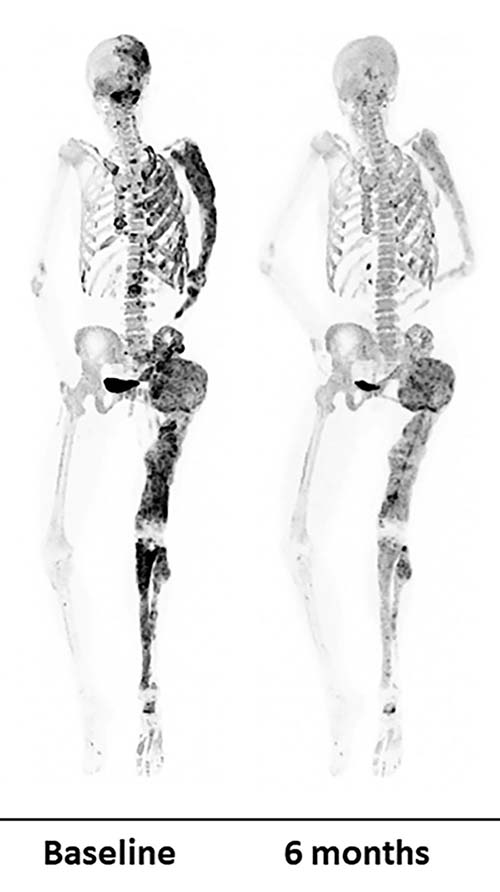Therapy for Rare Bone Disorder Shows Promise in NIH Clinical Trial
Medication is the first to reduce bone-weakening process in patients with fibrous dysplasia
A clinical trial at the National Institutes of Health found that a medication, denosumab, significantly reduced abnormal bone turnover in adults with fibrous dysplasia, a rare disease marked by weak and misshapen bones. Bone turnover, a process in which old bone is continuously replaced with new bone, is unusually accelerated in fibrous dysplasia and contributes to bone abnormalities. The study of eight participants was carried out by researchers from the National Institute of Dental and Craniofacial Research (NIDCR) and the NIH Clinical Center. The results, which showed that denosumab may improve patients’ quality of life by enabling healthy bone formation, were published as a correspondence report in the New England Journal of Medicine.
Fibrous dysplasia stems from gene mutations that cause scar-like (fibrous) tissue to replace healthy bone starting in early childhood. These fibrous lesions, which are marked by accelerated bone turnover, weaken bones, leading to bone deformities, fractures, physical disabilities, and pain. In some cases, the lesions can press up against organs and nerves, impairing functions like vision and breathing.
“Surgery is still the standard treatment for fractures and deformities caused by fibrous dysplasia,” said senior author Alison Boyce, M.D., a clinical investigator at NIDCR. “Denosumab is the first medication that appears to affect how fibrous dysplasia lesions behave and improves patients’ disease outcomes.”

Bone scans of a patient before (left) and after (right) a six-month denosumab treatment show reduced turnover within fibrous dysplasia lesions (dark-colored patches).
This page was last updated on Wednesday, April 5, 2023